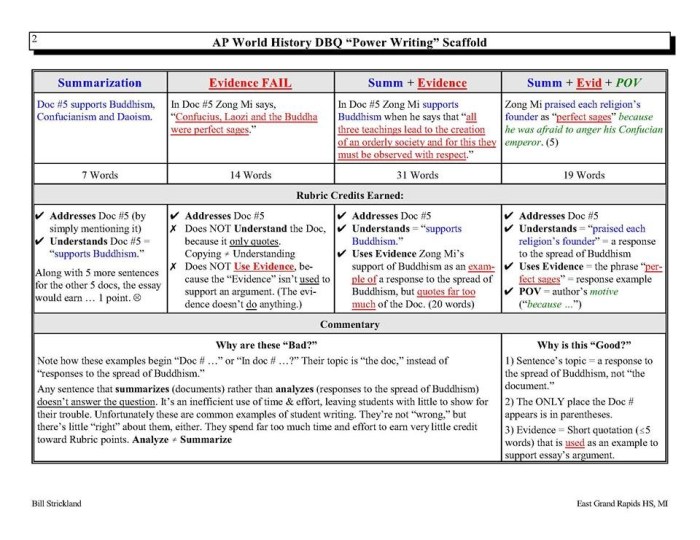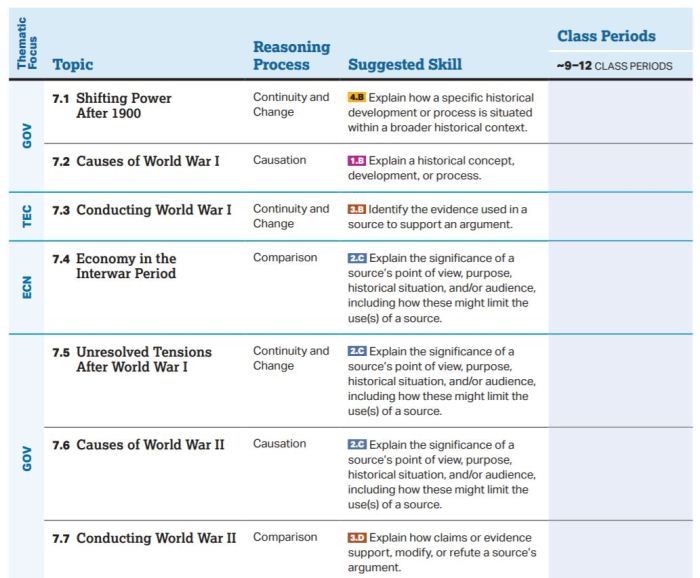Introducing the AP World Ultimate Review Packet, your ultimate companion for conquering the AP World History exam. This comprehensive resource provides everything you need to excel in this challenging subject.
With its meticulously crafted content, the review packet takes you on a comprehensive journey through the AP World History curriculum, empowering you with the knowledge and skills necessary to ace the exam.
Historical Context

The AP World History curriculum is a rigorous and comprehensive course of study that spans the globe and several millennia. It provides students with a deep understanding of the major themes, events, and people that have shaped human history from the earliest civilizations to the present day.
The “ultimate review packet” is an invaluable resource for students preparing for the AP World History exam. It provides a comprehensive overview of the entire curriculum, including key concepts, important events, and essential vocabulary. By working through the review packet, students can reinforce their understanding of the material and identify areas where they need additional study.
Significance of the Review Packet
- Provides a comprehensive overview of the entire AP World History curriculum.
- Reinforces understanding of key concepts, important events, and essential vocabulary.
- Helps students identify areas where they need additional study.
- Improves test-taking skills and strategies.
Content Analysis

The review packet covers several key historical periods and themes relevant to AP World History. It’s structured into distinct sections, each focusing on a specific era or aspect of global history.
Historical Periods
- Prehistory to Early Civilizations (c. 3.4 million BCE- c. 3500 BCE): This section explores the origins of humanity, the development of early societies, and the emergence of writing.
- Classical Civilizations (c. 3500 BCE- c. 500 CE): Covers the rise and fall of major civilizations in Mesopotamia, Egypt, India, China, and Greece, examining their political, economic, and cultural achievements.
- Medieval Civilizations (c. 500 CE- c. 1500 CE): Examines the development of civilizations in Europe, Asia, and Africa during the Middle Ages, including the rise of Islam, the Crusades, and the Mongol Empire.
- Early Modern Era (c. 1500 CE- c. 1800 CE): Focuses on the Age of Exploration, the Scientific Revolution, and the Enlightenment, as well as the emergence of global trade and empires.
- Long Nineteenth Century (c. 1800 CE- c. 1914 CE): Covers the Industrial Revolution, the rise of nationalism, imperialism, and the outbreak of World War I.
- Twentieth Century (c. 1914 CE- c. 2000 CE): Examines the major events of the 20th century, including World War I, World War II, the Cold War, and the end of colonialism.
Skill Development

The review packet provides numerous opportunities for students to develop critical thinking skills. It encourages them to analyze historical sources, evaluate evidence, and draw informed conclusions.
One of the key components of critical thinking is analytical reasoning. The review packet includes several exercises that promote this skill, such as:
Source Analysis
- Students are presented with primary and secondary sources and asked to analyze their content, context, and bias.
- They must identify the main arguments, supporting evidence, and potential limitations of the sources.
- This exercise helps students develop their ability to evaluate the credibility and reliability of historical information.
Document-Based Questions
- Students are given a set of documents and asked to construct a coherent essay that addresses a specific historical question.
- They must synthesize information from multiple sources, identify connections, and develop a nuanced argument.
- This exercise fosters students’ ability to think critically about historical evidence and to communicate their findings effectively.
Historical Interpretation
- Students are presented with a historical event or issue and asked to interpret its significance.
- They must consider multiple perspectives, weigh evidence, and formulate their own conclusions.
- This exercise encourages students to develop their ability to think independently and to form informed judgments about the past.
Exam Preparation

To effectively prepare for the AP exam, it’s crucial to utilize the review packet strategically. This comprehensive resource provides a structured approach to revisiting key concepts, practicing skills, and familiarizing yourself with exam formats.
The AP World Ultimate Review Packet is a comprehensive resource for students preparing for the AP World History exam. It covers all of the topics that are tested on the exam, and it provides students with a variety of practice questions to help them prepare.
For additional guidance on specific topics, students can use AMC 19-48 . The AP World Ultimate Review Packet is an essential tool for students who want to succeed on the AP World History exam.
The AP exam typically includes a combination of question types, each designed to assess your understanding of historical content and your ability to analyze and interpret historical sources. Let’s delve into the different types of questions you may encounter:
Multiple-Choice Questions (MCQs)
- Present a question or statement with multiple answer choices.
- Require you to select the best answer from the options provided.
- Test your knowledge of specific historical facts, concepts, and interpretations.
Short Answer Questions (SAQs)
- Ask a specific question that requires a concise, factual answer.
- Test your ability to recall and accurately present historical information.
- May involve identifying historical figures, events, or concepts.
Document-Based Questions (DBQs)
- Provide a set of historical documents related to a specific topic.
- Require you to analyze the documents, identify their context, and construct a historical argument supported by evidence.
- Test your ability to interpret primary sources, synthesize information, and develop a persuasive historical narrative.
Long Essay Questions (LEQs), Ap world ultimate review packet
- Present a broad historical question that requires a well-developed, analytical response.
- Test your understanding of historical themes, your ability to synthesize information from multiple sources, and your writing skills.
- May involve comparing and contrasting historical events, analyzing cause-and-effect relationships, or evaluating the impact of historical decisions.
Sample Questions

The sample questions in this review packet are designed to provide students with a variety of question types and formats that they may encounter on the AP World History exam.
Multiple Choice Questions
- Which of the following was a major cause of the French Revolution?
- What was the significance of the Battle of Marathon?
- Which of the following was a key factor in the development of the Industrial Revolution?
Short Answer Questions
- Describe the key features of the Neolithic Revolution.
- Explain the impact of the Columbian Exchange on both the Americas and Europe.
- Analyze the causes and consequences of World War I.
Document-Based Questions
- Analyze the following document to determine the author’s perspective on the causes of the American Revolution.
- Use the following documents to compare and contrast the economic policies of the Soviet Union and the United States during the Cold War.
- Evaluate the following document to determine its reliability as a historical source.
Additional Resources: Ap World Ultimate Review Packet

Students can enhance their review by utilizing additional resources beyond the core materials provided. These resources can provide diverse perspectives, reinforce concepts, and supplement understanding.
Textbooks
Supplemental textbooks offer comprehensive coverage of AP World History content. They provide detailed explanations, historical context, and additional examples. Reading textbooks can deepen students’ understanding of key concepts and events.
Websites
Numerous websites specialize in AP World History review materials. These sites offer interactive quizzes, practice questions, and video lectures. They can help students assess their understanding, identify areas for improvement, and engage with the content in a dynamic way.
Online Courses
Online courses provide structured review programs tailored to the AP World History exam. They offer video lessons, practice questions, and discussion forums. Online courses can provide a comprehensive and interactive learning experience that complements classroom instruction.
Question Bank
Is the review packet suitable for all levels of students?
Yes, the review packet is designed to cater to students of all levels, providing a solid foundation for beginners and ample challenges for advanced learners.
How long should I spend studying with the review packet?
The time you allocate for studying with the review packet will vary depending on your individual needs and learning pace. However, it is recommended to dedicate a consistent amount of time each day to ensure thorough preparation.
What types of questions can I expect on the exam?
The review packet covers a wide range of question types, including multiple choice, short answer, and document-based questions. By familiarizing yourself with these formats, you will be well-equipped to tackle any challenge on exam day.